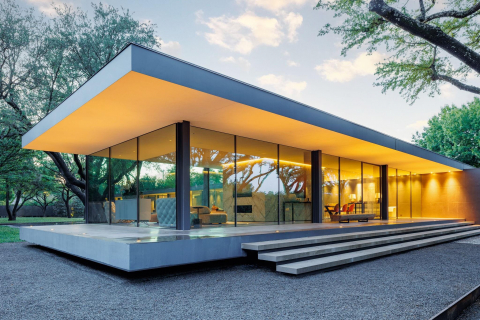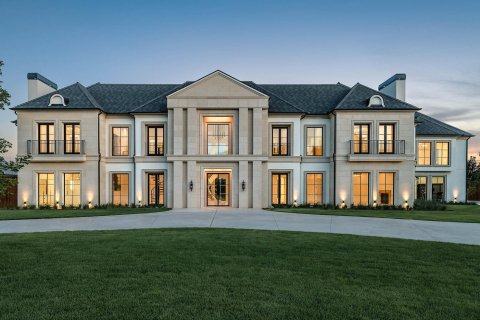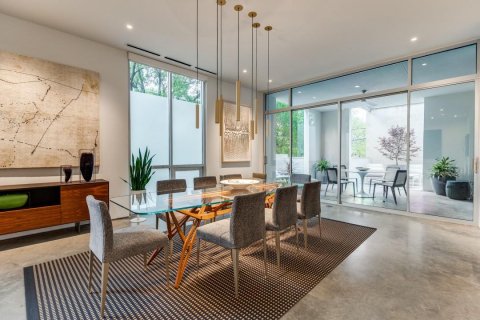From Project Runway to Project Face Mask
Fashion Designer Venny Etienne is Making Washable Masks for First Responders and More
BY Rebecca Sherman // 04.13.20Levenity face masks for First Responders come without a label and are $5. Masks for the general public are $10. Prices include materials and shipping.
Venny Etienne’s phone is blowing up. “I’ve had three text messages and a phone call just now. It’s going crazy in terms of response,” says Etienne, a Dallas fashion designer whose ready-to-wear company, Levenity, is producing face masks for first responders and others.
On the morning we spoke last week, Etienne had just shipped 300 masks, including 50 headed for hospital workers in New York and 125 for a hospital in Bedford, Texas; another 10 were sent to a nursing home in Phoenix. Masks have also been provided for Dallas Police’s Southeast Neighborhood officers and lab technicians at Creative Test Solutions, which provides services for Carter BloodCare.
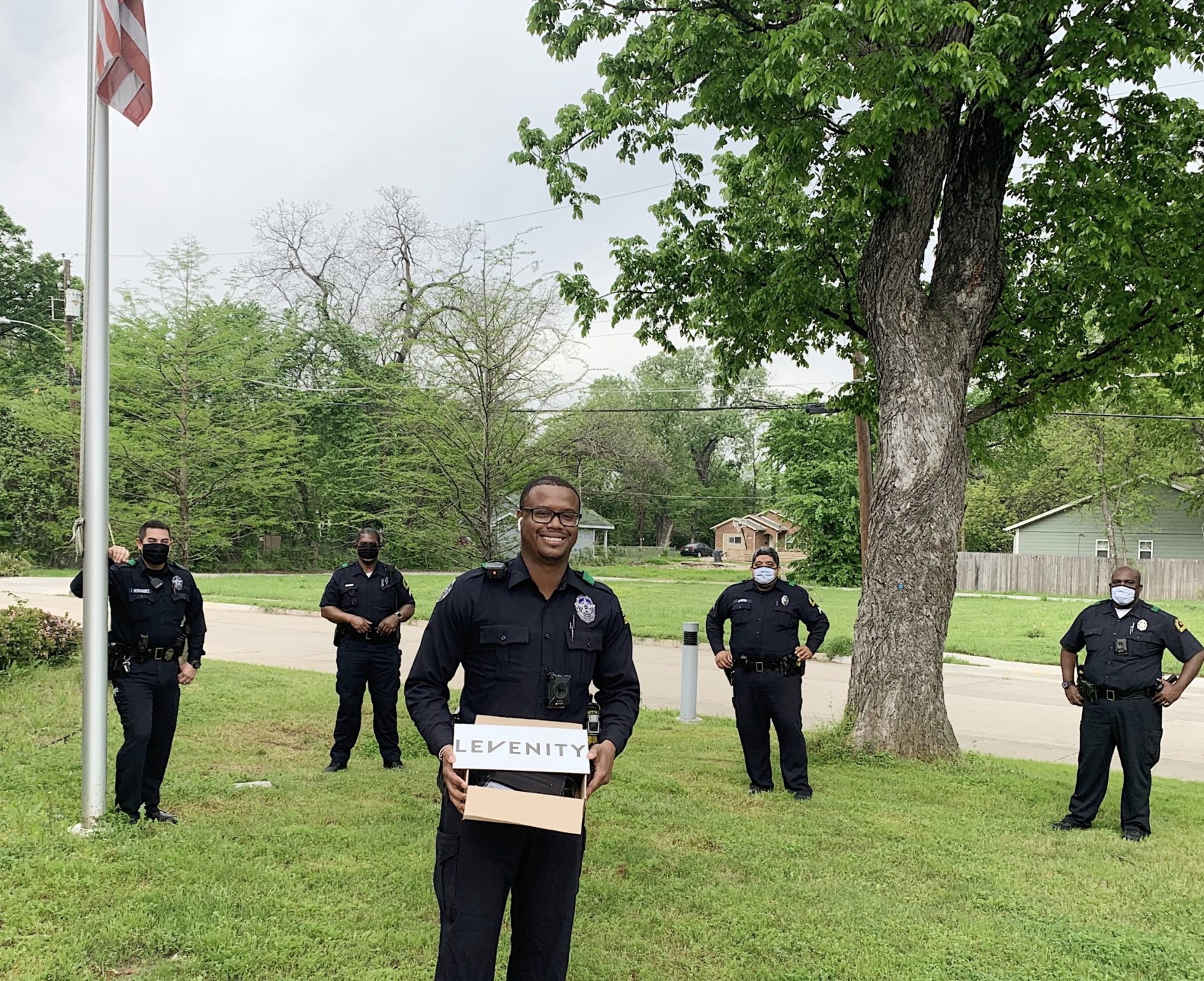
It all started when a friend, who works in a health care facility in New York asked him to make 40 masks. He did, and more requests came flooding in as word got around.
You may recognize his name — Etienne was a contestant on Project Runway last season, the Bravo fashion reality show. His designs, which feature striking texture-blocking techniques, have been worn by Cardi B and Michelle Williams.
“Thank God for Project Runway, where I learned to practice my speed,” Etienne says. He cranked masks out by himself in the beginning.
“I could make a mask before you could sing ‘Happy Birthday’ twice,” he says. He’s since elicited help from his sister, business partner, and four others to help meet the demand.
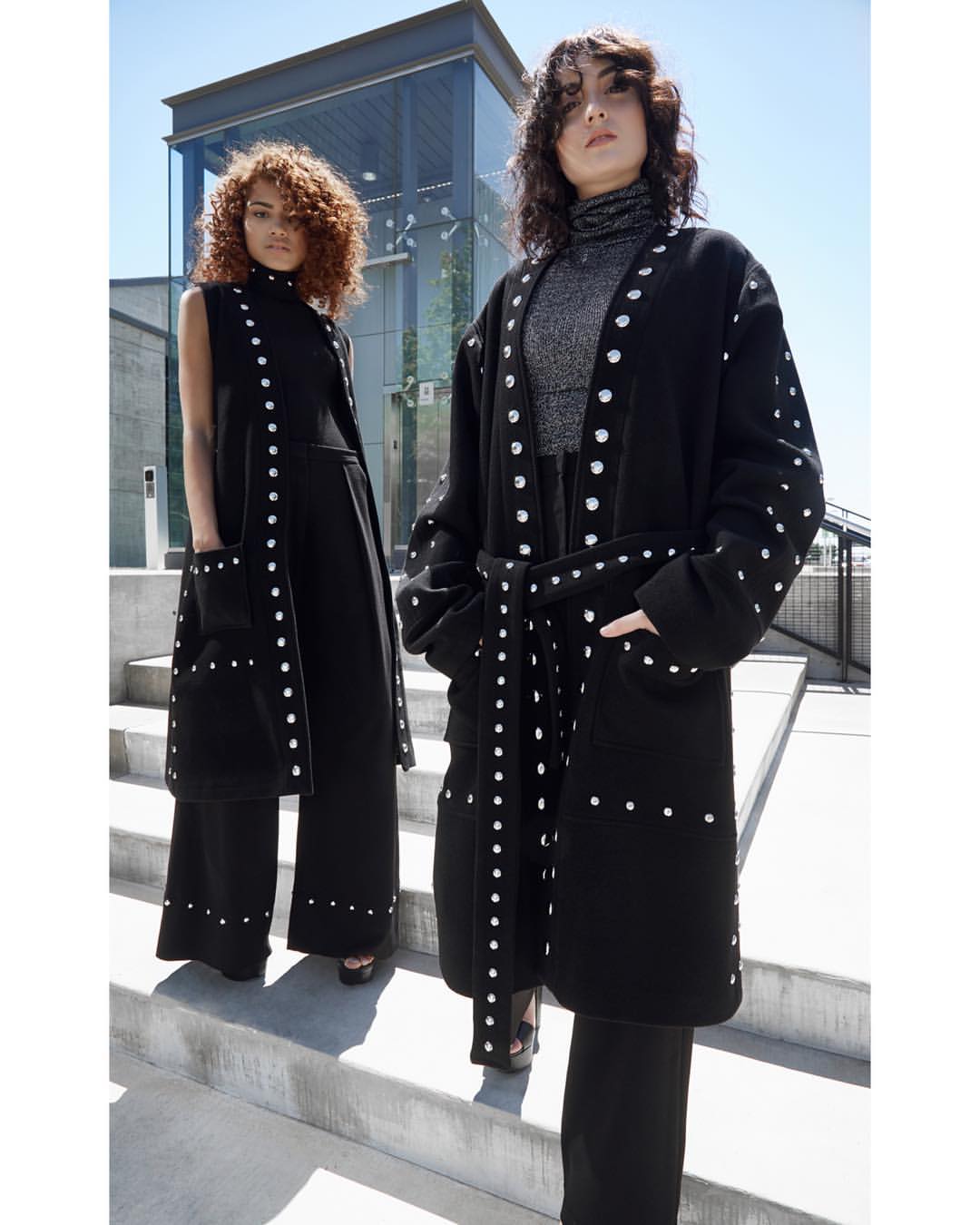
Etienne designed the masks according to CDC guidelines, using double layers of heavyweight cotton. First responders’ masks have an added filter made from the same interfacing typically used in clothing, which makes them completely washable. They’re also designed to fully cover critical areas from the nose to below the chin. Etienne says that while the masks are not medical grade (like N95 masks), they do help bridge the gap during a nationwide shortage of personal protective gear.
FORGET THE TOILET PAPER SHORTAGE
With so many people around the country making their own masks, it has generated an unexpected shortage of elastic, which is used to secure masks around the ears. Only a few mills around the country produce elastic, which is commonly used in clothing manufacture, and all but one are closed. That mill is working 24/7 to handle the demand, but they’re also limiting orders to 25 yards, Etienne says.
Meanwhile, “all of us are emailing other designers, asking if they have any elastic, and can they order some,” he says. “I’m even asking my cousins and brothers to order it, because we have to crank these orders out.”
Etienne, who is of Haitian-American descent, is originally from Brooklyn and still has family there, including his parents. “It’s bad right now up there, so it’s really hitting home for me,” he says.
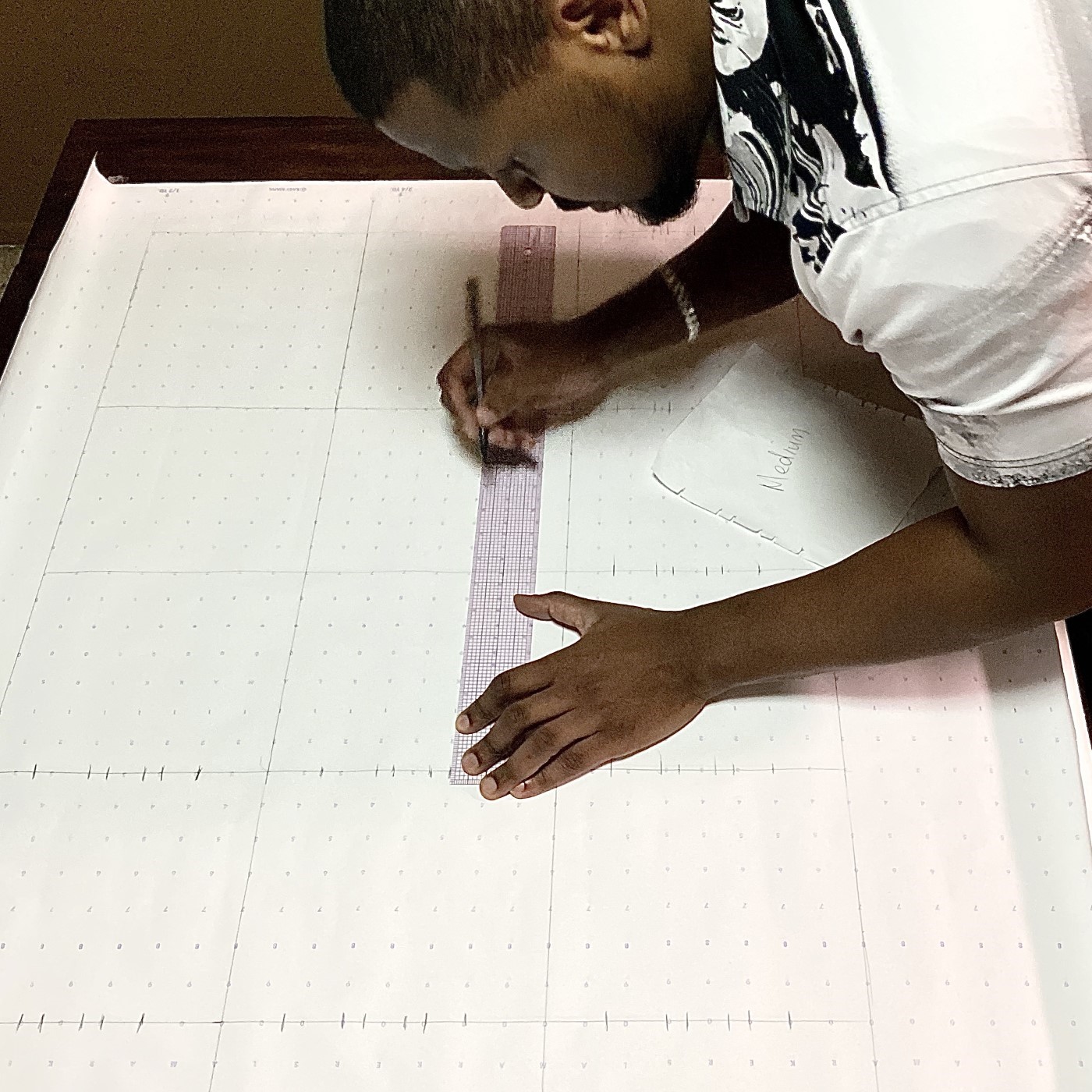
Etienne gets another call while we’re talking and puts me on hold. When he returns, he’s elated: “We just secured 100 yards of elastic!” One yard of elastic is enough for two masks, he says, so that’s 200 masks they don’t have to worry about now. The sweet deal was made by his intern, who kept calling fabric sources until she hit the jackpot in Arlington.
“I’m really grateful to everyone who’s helped,” Etienne says. “It’s such an emotional time, so doing something as simple as making a mask to protect someone is as fulfilling as anything I’ve done — if not more.”
Masks are available on the Levenity website, for a nominal fee to offset materials and shipping: $10 for the general public, $5 for first responders.
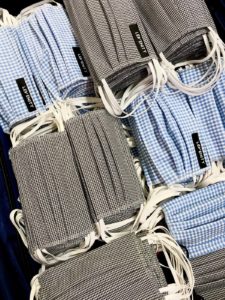
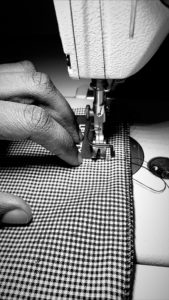
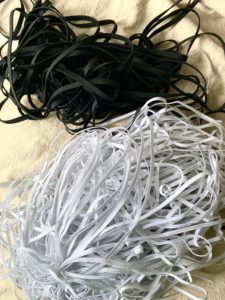
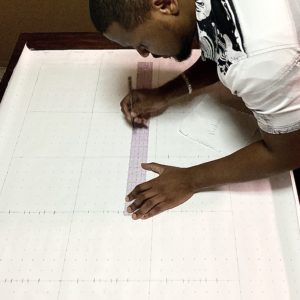
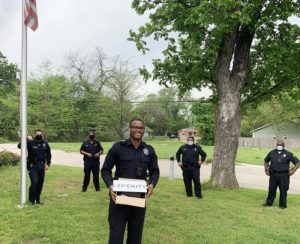
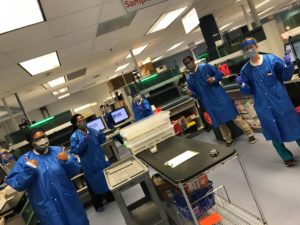
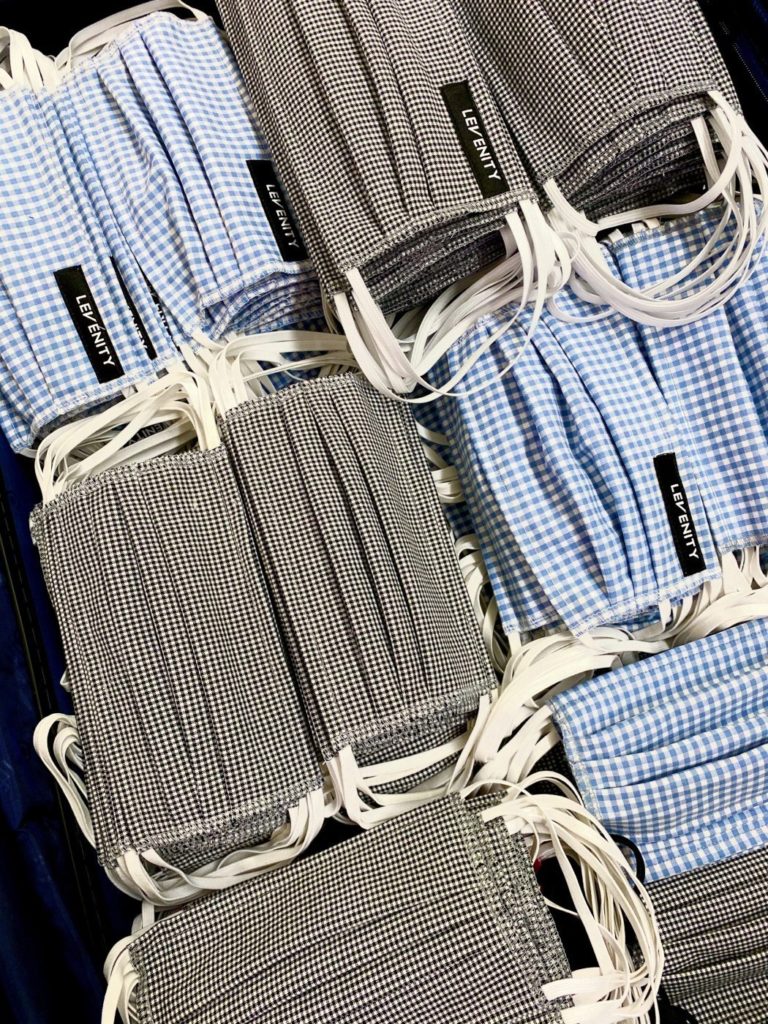
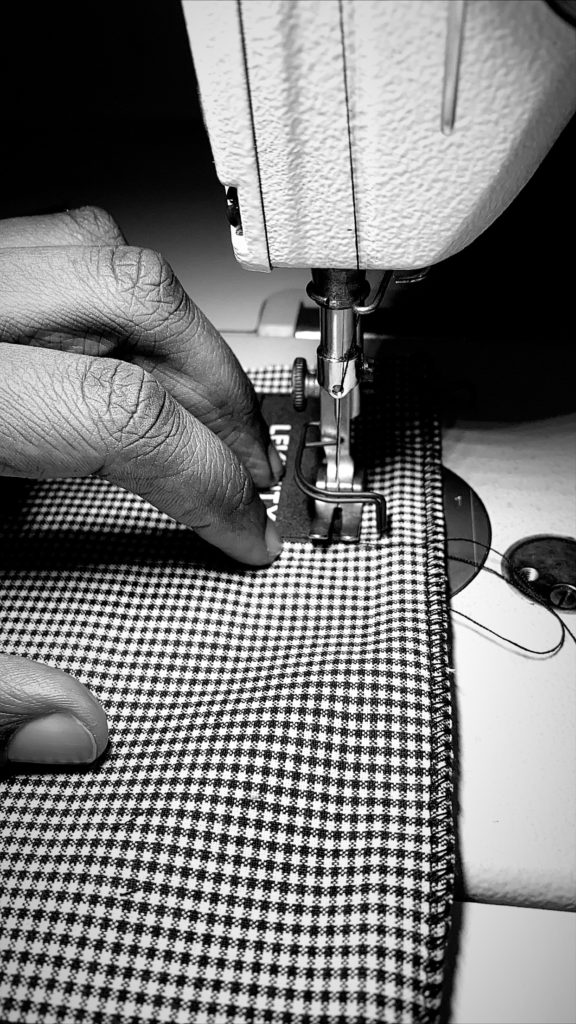
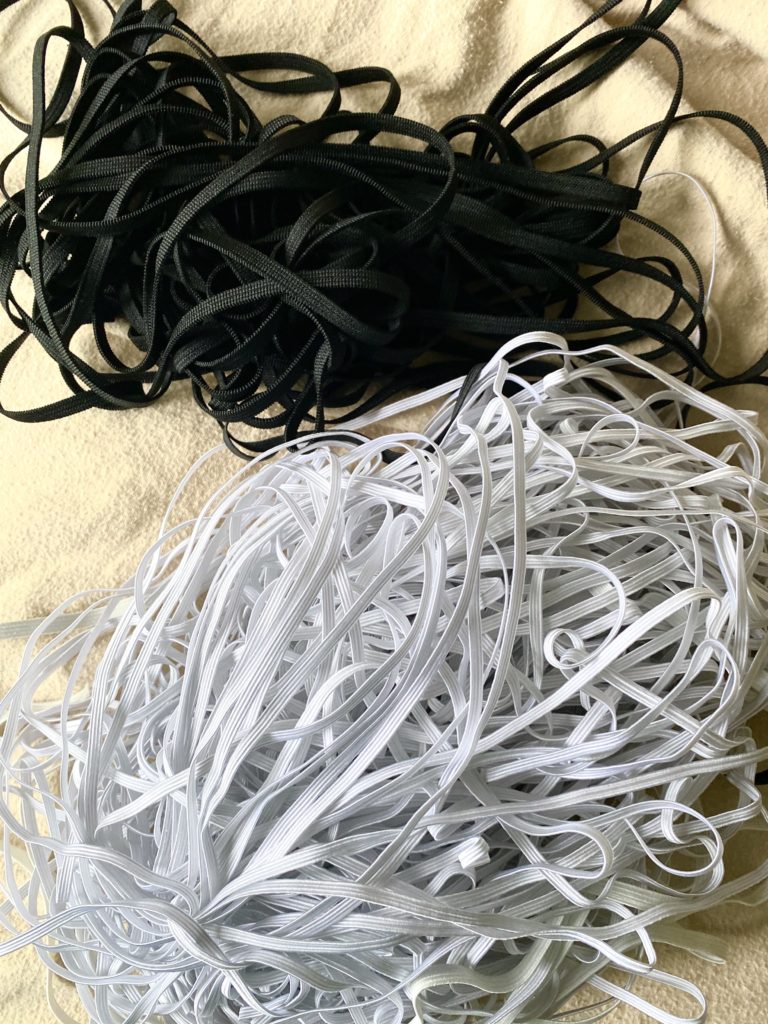
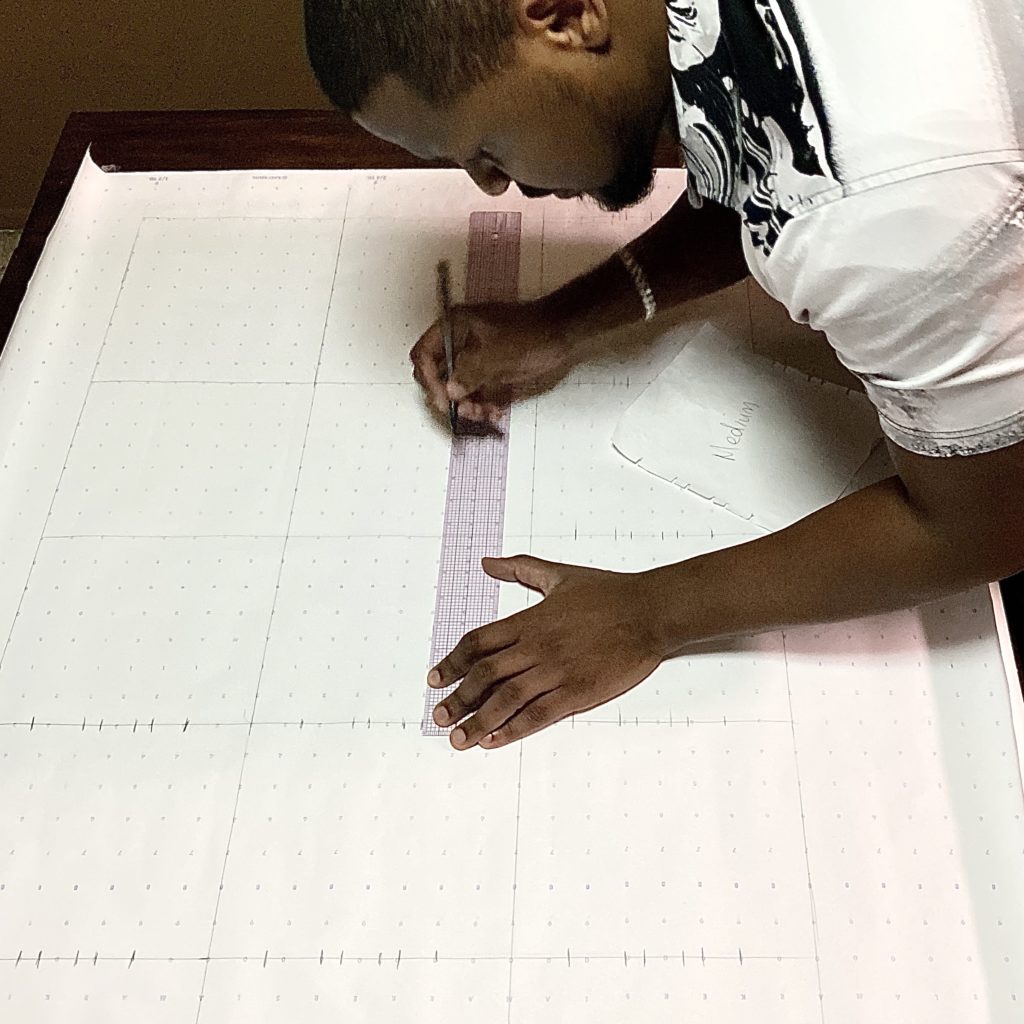
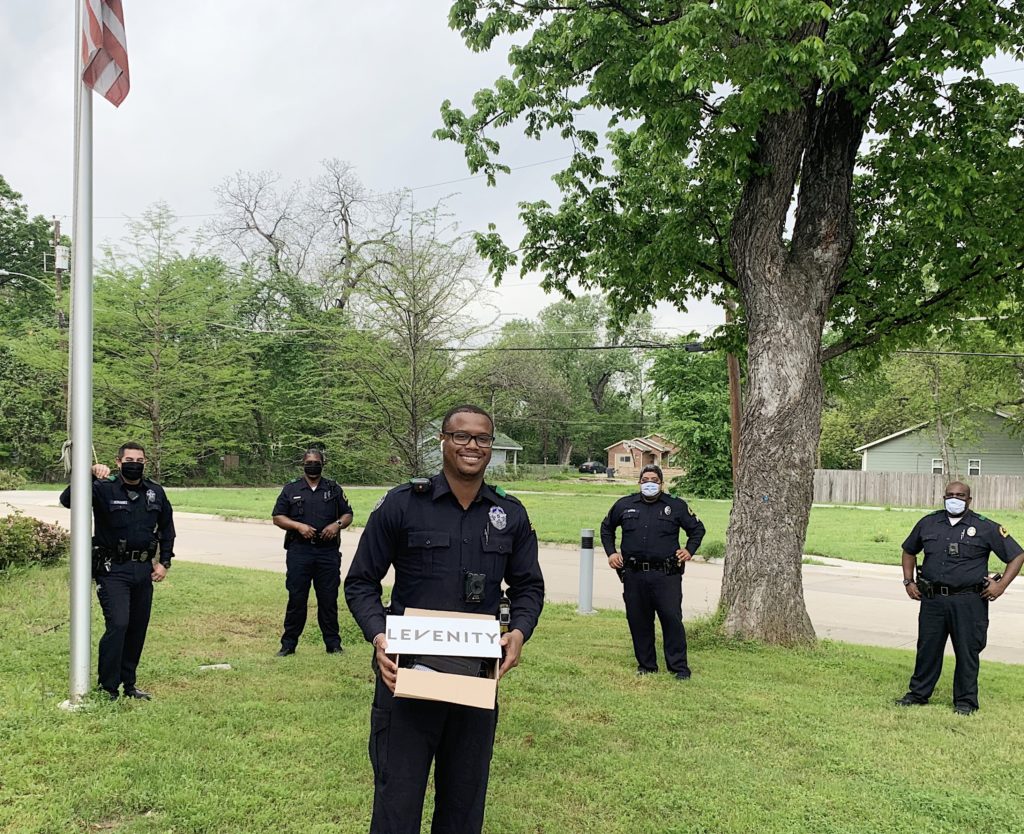
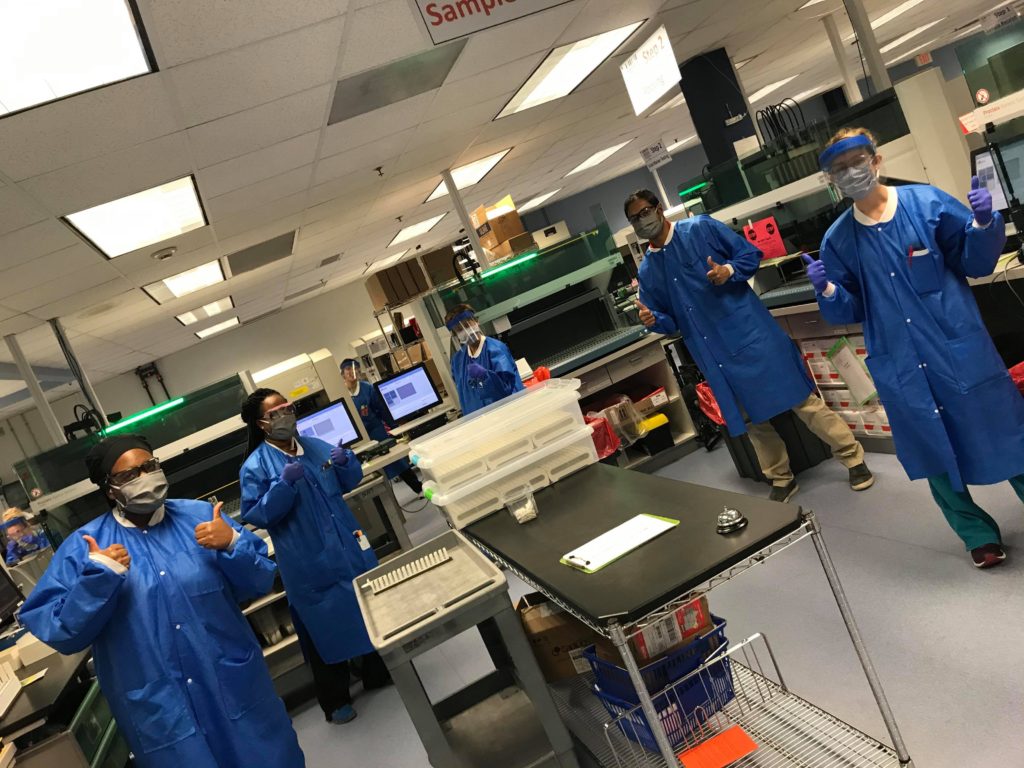




_md.jpeg)

